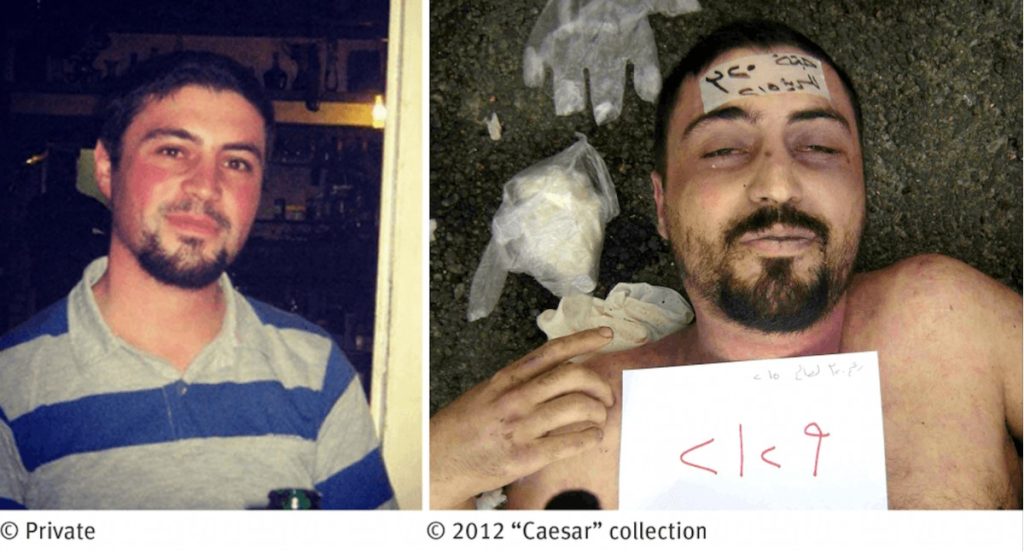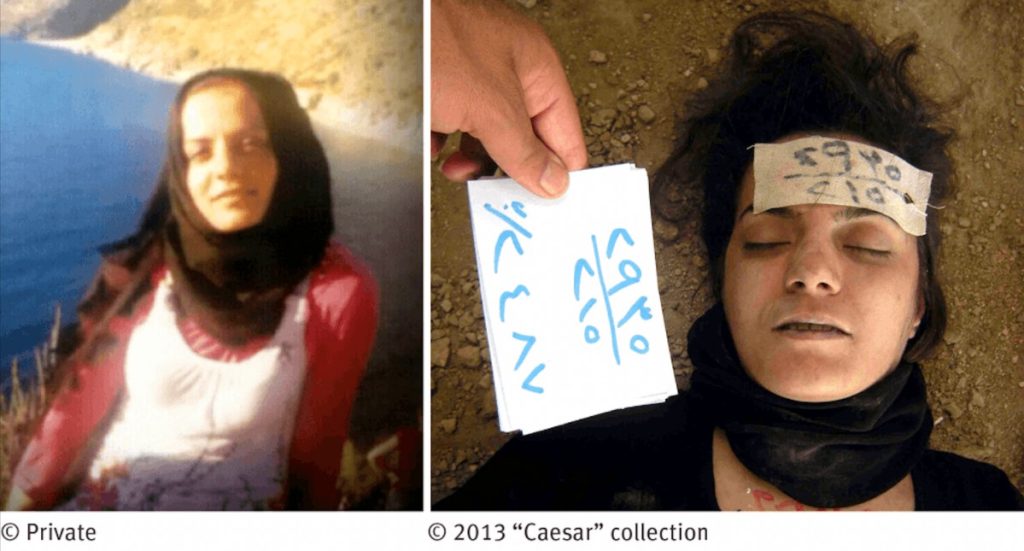From a Human Rights Watch Report
Ayham Ghazzoul was a student at Damascus University pursuing a masters’ degree in dentistry and a human rights activist who worked with the Syria Center for Media and Freedom of Expression in Syria, as well as the Syrian Violations Documenting Center.
He was 25 years old when members of the National Students’ Committee, a pro-government student union, detained him at Damascus University on November 5, 2012 and turned him over to Military Intelligence. Security forces had previously arrested him on February 16, 2012, and held him until a military court ordered his release in May.
M., another student from Damascus University who was arrested on the same day, said that security officers took him to a room in the medical college of Damascus University. Ayham was already there. The officers tortured the two students for approximately four hours, beating them with their hands, shocking them with electric batons, whipping them with cables and hoses. They were later transferred to the 215 Branch (Military Intelligence) together and detained in the same cell.
On the fourth day of their detention, November 9, 2012, M. said:
Ayham came to me and said I am so tired I want just to sleep, I told him come and put your head on my leg. After about 45 minutes the security guards came to wash the corridor where we were sitting, then I tried to wake up Ayham but he didn’t respond. I shouted to a doctor from Aleppo – he was [also] a prisoner- he came and put his hand on Ayham’s neck and his hand and said he had died…30 minutes ago, Ayham’s body was very cold when I touched it. Then [the guards] brought a blanket and put Ayham inside it … and put a number on his head…and took him.
Ayham’s family did not learn of his death until January 20, 2013, more than two months later, when M. was released and described to them Ayham’s death in the 215 Branch. In 2014, they began searching for official confirmation of Ayham’s death. Maryam, his mother, visited both the 215 and the 248 (Military Intelligence) security branches in Damascus, but the security officers did not initially provide her with any information. On May 10, 2014, the military police in Qaboun referred her to the Tishreen Military Hospital, which provided her with a death certificate that stated heart failure as the cause of death. Maryam requested the return of Ayham’s personal belongings (his wallet, keys, and identification) both from the hospital authorities and by lodging a formal request with the military prosecution office. However, his belongings were never returned to her.
Human Rights Watch showed three Caesar photographs identified as being of Ayham’s body to Physicians for Human Rights’ team of forensic pathologists. Based on these photographs, they were not able to identify the potential cause of his death or identify major injuries upon his body.





